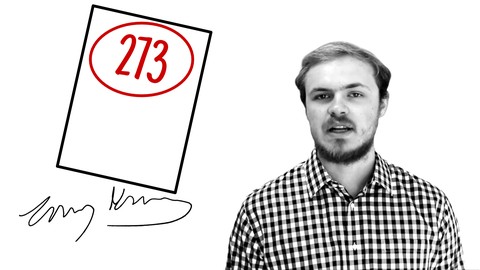
Master the USMLE Step 1 (250-280) – Anki, Qbanks and More
-
How to use Anki to memorize all high yield info you need to do well on the USMLE Step 1 -
How to use UWorld and other Qbanks to prep for the USMLE Step 1 -
Why the common wisdom of UFAPS and especially First Aid is somewhat flawed
- You should be familiar with basic medical and medical school terminology
Going through medical school is one of the most grueling paths anybody can take. Navy SEALs have Hell Week, but med students have Hell Years.
A couple years ago I started getting medical students asking me for advice on how to apply my learning system to medical school and especially the board exams, and that lead to coaching multiple medical students over the last year to develop this course.
The academic research on studying shows that three things matter most for long term retention of information.
1. Practice Testing
2. Flashcards
3. Mnemonics
The first is part of a larger paradigm of “Deliberate Practice” which was developed by Anders K Erikson, who’s work was later popularized by Macolm Gladwell in the 10,000 hour rule. The idea is that you should practice for the exact thing you will be tested on. Which means lots of practice questions. The best Qbanks like UWorld are even better than this because they have comprehensive explanations of how the answer the question if you get it wrong.
The second, flashcards, is based on spaced repetition research. This is the method where you can get as close as possible to forcing your brain the memorize things, and measure your progress in a quantitative way. The medical community is are in that it has tons of pre-made flashcard decks, some with tens of thousands of pre-made cards, ready for you to use. These represent hundreds of person-hours of work that you don’t have to do.
The third, Mnemonics, is just memory techniques. This involves either audio memory like rhyming, visuals like Sketchy Medical products, and Acronyms. These help you memorize via “brute force” the things that won’t stick with just simple flashcards.
In this course I will recommend a 2 year study plan starting in the beginning of M1 to help you methodically study and prepare for the Step 1 exam. I will also explain how to use a variant of my plan if you only have 1 year, or are close to your dedicated time.
I will tell you exactly which resources to use and why, and it will all be laid out in a visual way.
See you inside the course,
Timothy
- Medical students who want to get high Step 1 scores
- M1s who want to get an early start on their Step 1 studying
- M2s who want to make the best use of their remaining time before they take the Step 1






